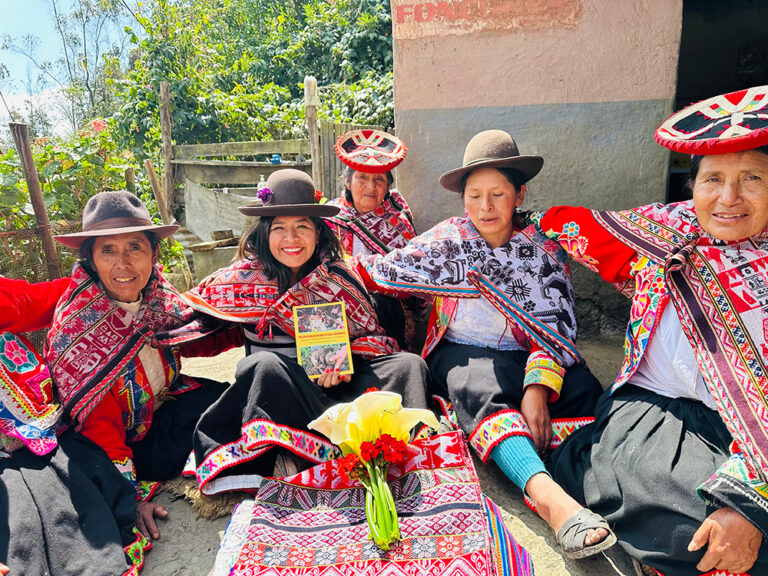Time and date: April 14 (Mon), 10:00 – 11:30
Venue: Linnesalen, The Royal Swedish Academy of Sciences

Scholars from diverse disciplines increasingly recognize the significance of connecting with traditional ecological knowledge (TEK). However, facilitating meetings and fostering collaborations between different knowledge systems can be challenging. Mariaelena Huambachano has explored the philosophies of well-being among the Māori and Quechua peoples, focusing on their food systems, stories, theories, and practices. Her research highlights the significance of integrating Indigenous knowledge into sustainable food systems. Additionally, she developed an innovative research methodology known as the “Khipu Model,” as a valuable resource for future research on Indigenous ways of knowing. Join us for a conversation about her new book “Recovering Our Ancestral Foodways”. This is an opportunity to discuss experiences with Indigenous cultures and gather suggestions on how scientific knowledge can more effectively engage with traditional ecological knowledge.
Speaker
Mariaelena Huambachano, Associate Professor, Environmental Humanities – Native and Indigenous Studies, Syracuse University
Biography
Dr. Mariaelena Huambachano, a native Peruvian Indigenous scholar, and Associate Professor at Syracuse University. She is involved in developing the Global Indigenous Cultures and Environmental Justice Department and Center. Dr. Huambachano advocates for the rights of Indigenous peoples and is dedicated to placing Indigenous knowledge and philosophies of well-being at the forefront of discussions on food security and nutrition.
Her work spans higher education and various United Nations systems, including IPBES, UNESCO, and HLPE-FSN. Currently, she serves on the UNESCO Indigenous and Local Knowledge Task Force for the 2024-2028 mandate. Dr. Huambachano’s research and teaching adopt an interdisciplinary approach, combining Indigenous Studies, Environmental Studies, and Sustainable Development. These fields address crucial issues such as food and climate justice, environmental governance, agroecology, public policy, community-driven development, traditional ecological knowledge, and decolonizing methodologies.